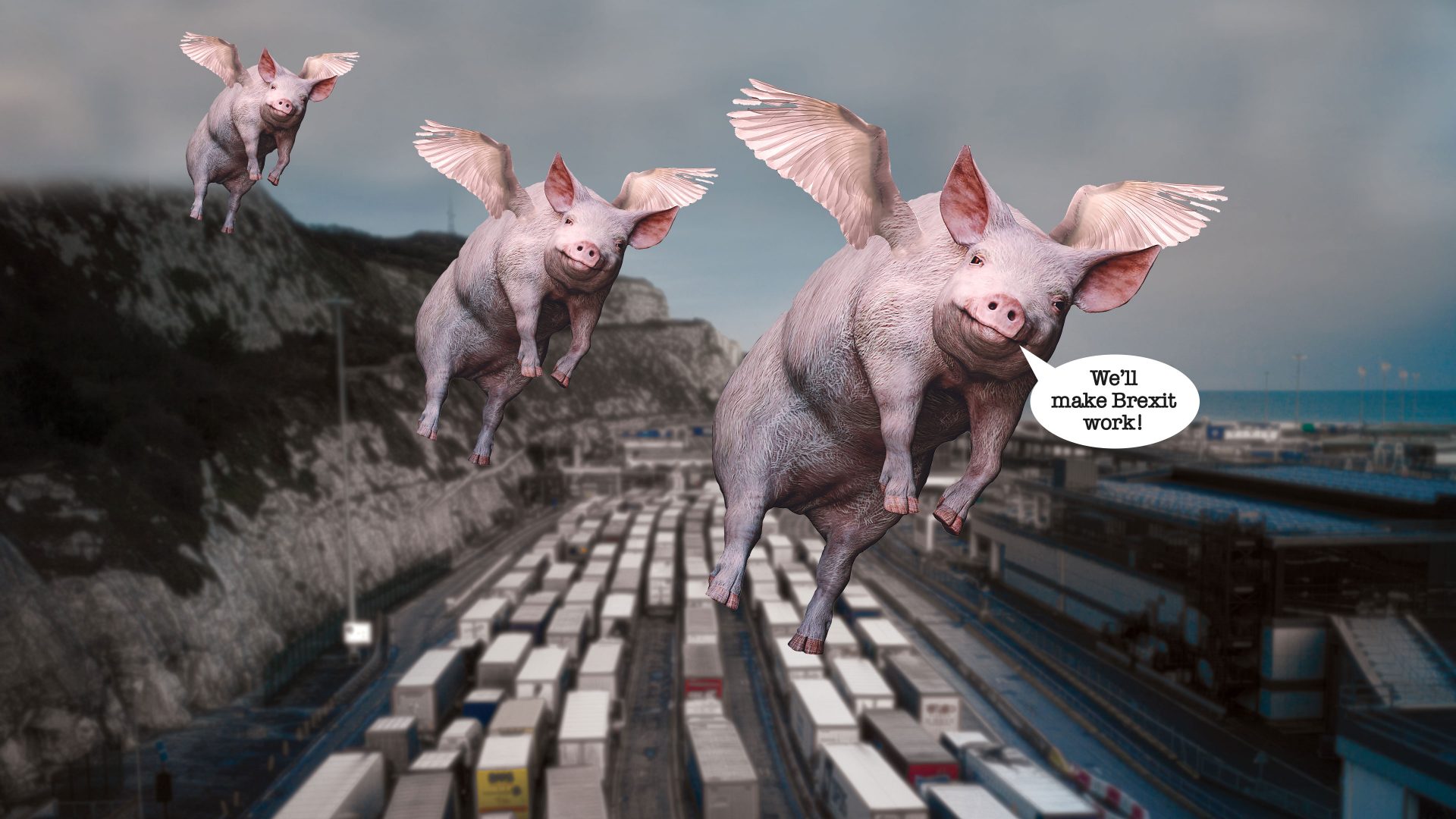It would be a stretch to say I’m disappointed with Sir Keir Starmer’s stance on Brexit. As he laid out Labour’s position on Monday evening at the Centre for European Reform, having earlier trailed his core points to the BBC, he was plain on one thing: no move to rejoin, not in the mildest degree; not the single market, not the customs union. These were matters he didn’t want to re-litigate. He only wanted to de-dramatise. To argue about whether the UK should rejoin the EU would be to “look back over our shoulder”, and jeopardise public faith in democracy and its fruits.
This was not disappointing because in order to be let down, you need some hope, and never since he took the leadership has Starmer given Remainers, left or right, any cause for it. But what he is, is wrong: strategically, tactically, ethically, patriotically, wrong from every angle.
After the referendum, the new battle lines took shape painfully slowly. This was in part due to the fog of ignorance, as Brexit’s leading proponents took some months to figure out what a customs union actually was, and the only serious intellectual engagement from any of them was on the matter of their own careers.
Yet the deeper problem was that Leavers were arguing the abstract and Remainers were arguing the concrete: it was sovereignty versus sterling fluctuation; freedom versus pig-farming regulation; British might and pride versus supply chain issues. Boring, technical details were hard to animate. Flourish, passion and overstatement were much more forceful and self-generating when applied to concepts rather than observable reality. Let’s not give Johnson and his cadre too much credit, they gained a large amount of their energy and leeway from being absolutely unscrupulous, having no qualms about probity or coherence, and no deep enough concern for the nation’s prosperity to ever trump their self-interest. Nonetheless, they got their hardest of hard Brexits anyway.
What they forgot, or more likely never cared about, is that abstracts evaporate while concrete realities only become more urgent. The negative effects of the deal didn’t arrive at once, and hit different sectors in waves, the whole shitshow cohering slowly, like Guernica painted by a pointillist.
One week it was only fishermen feeling the squeeze, the next it was only long-haul drivers. One month, it was hospitality going under without the staff; produce might not be rotting in the fields, for the exact same reason, until a whole season later. A scientist might find a workaround when their collaboration collapses because you can no longer exchange urine samples between Barcelona and Bradford; it could easily take months before that issue, plus a lack of European PhD students, plus a more general crisis in higher education, plus crippling fees to do previously simple, frictionless things, such as take a laptop on the Eurostar, will come together as a single certainty.
The saboteurs may have conjured their munitions from thin air, but the bridges they blew up were real. And as this scandal unfolds across every sector, from education to agriculture, retail to finance, there are a lot of injured parties, suffering variations of the same needless and gargantuan challenge, with absolutely no reason to tell it anything other than how it is.
The hardcore Leavers are now increasingly isolated. Almost all of them are in the cabinet. Their casual allies, happy to parrot some flimflam about the will of the people, vanished months ago. Their most fervent supporters in business are sidling off, unwilling to be tarnished by Brexiteers’ wider associations, of corruption and incompetence.
As Ken Clarke once said of the Iraq war, it turned on a sixpence: one day nobody sensible opposed it; there was a period of tactful silence as its flaws unfurled; the next thing you knew “you couldn’t find a person in the street who had ever supported it, or ever would”. Brexit is cast inexorably on that trajectory. Nobody needs a warning from the OECD that thanks to leaving Europe, the UK will be the slowest-growing economy in the G20, besides Russia.
Nobody’s waiting for any more proof that a Putin-commissioned bot-army was stacking the ranks of the cheerleaders. Nobody’s checking down the back of the nation’s sofa for a Brexit benefit they might have forgotten about. Manifest to anyone who is concentrating, we are now partway through that sixpence-turn, on our way to the new reality, in which you won’t be able to find a person in the street who ever supported Brexit, or ever would.
A bold Labour leader might say outright that Brexit had been a mistake; even the most cautious would note the pile-up of catastrophic consequences and think their way into the reality of a year or 18 months from now, when the negatives have had time to bed in and the positives have still not materialised. They would be trying to anticipate the feelings, then, of an electorate that had been sold a destructive project on a false premise.
Keir Starmer isn’t even being governed by current focus groups, but rather the focus groups, of 2017 – when Leaver passions were still fresh, of 2018 – when Brexit looked fine because it hadn’t happened, of 2019 – when Boris Johnson sold it as a whole heap of fun, and the emptiness of his bonhomie had yet to become broadly apparent. Starmer is working to Johnson’s own Red Wall playbook, in which the severance of international ties is somehow a debt the nation owes to the areas that globalisation left behind. But that atonement had neither material value nor political sincerity, and everyone, from the Red Wall voter to the blue shires, from the inner Tory circle to its backbenchers, has realised that. Everyone, astonishingly, except the leader of the Labour party.
Meanwhile, the way you sometimes only realise how much you love your baby when it nearly falls off a changing table, people who never thought of themselves as patriotic, as such, realise only as it vanishes the deep pride they took in Britain’s place in the world, in its institutions and conventions, in its constructive creativity. If Keir Starmer can’t find the language or the vision to restore these things, better to stay silent than to “de-dramatise” a disaster.




